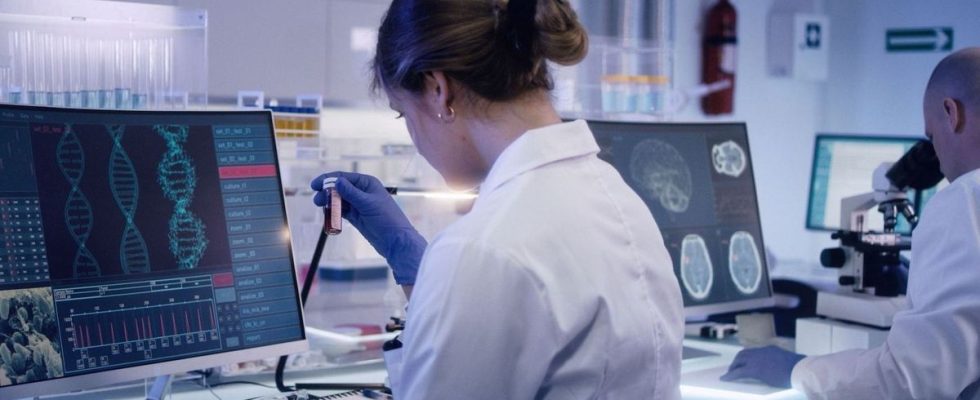Published on
Updated
Reading 2 min.
Artificial intelligence is taking over the world of science. American researchers have just carried out an experiment with the help of a fully autonomous laboratory, controlled by artificial intelligence models and robots. In addition to speeding up the scientific process, this new approach would help find solutions that humans might not have thought of on their own.
An article from Nature returns to this fully automated laboratory experiment. In this specific case, researchers at the University of Wisconsin at Madison used a machine learning model to come up with a whole bunch of protein sequence modifications and be able to test them all. Ultimately, this process made it possible to create enzymes capable of functioning at temperatures at least 12°C higher than those at the start.
Concretely, this laboratory is made up of robotic equipment controlled by a relatively simple artificial intelligence model. Over time, the system designed different protein modifications, increasingly refined and each time tested by robots. Until the end, this automated process made it possible to optimize the results. This study ultimately lasted almost six months and only occasional repairs required human intervention. “A human could spend up to a year doing the same work“, specifies the study.
This type of “autonomous laboratory” paves the way for rapid and efficient advances, at least in protein research. The principle according to which AI suggests modifications and then robots systematically test them to optimize their effectiveness could well be extended to other types of research.
For its part, the pharmaceutical industry has already taken up this subject. The start-up Insilico Medicine has used artificial intelligence to design new drugs dedicated to so-called rare diseases, more precisely a new molecule intended to treat idiopathic pulmonary fibrosis (IPF). In this specific case, AI saved a lot of time, knowing that the search for drugs for this type of disease usually takes a lot of time and is terribly expensive for laboratories.
In a completely different genre, but based on the same principle, machine learning and algorithms have recently made it possible to develop a more lithium-efficient material which could one day equip a whole new generation of batteries. In this case, artificial intelligence made it possible to considerably reduce research time, by managing to study 32 million possible combinations in just 80 hours.
